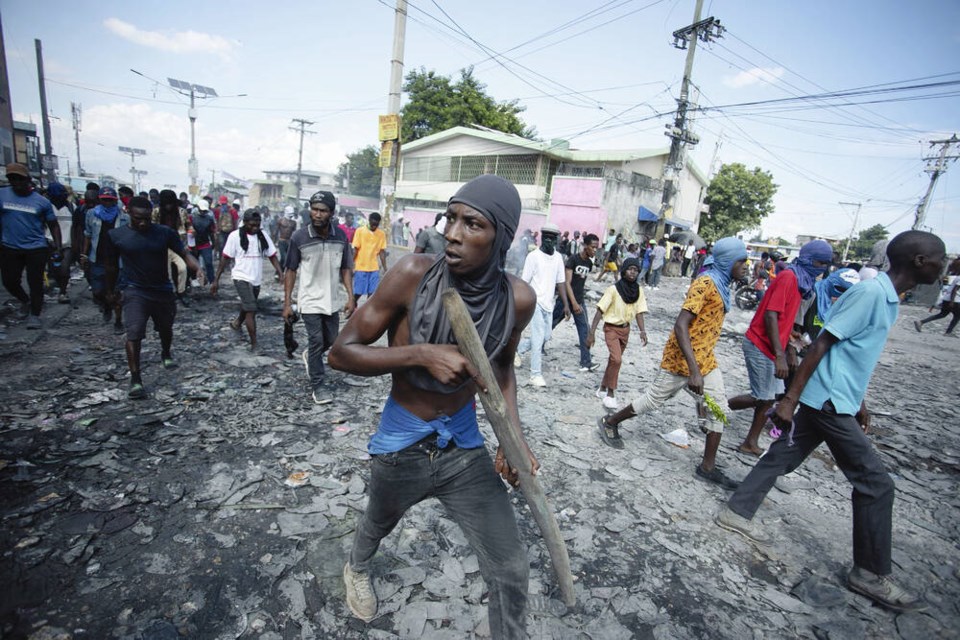A commentary by a former UN Assistant Secretary General and Force Commander UNDOF (Syria/Israel) with experience on three UN missions and who has been to Haiti. He lives in Victoria.
The second part of a two-part series. The first part gave reasons why Canada should get involved in Haiti.
The U.S. president has asked a favour of Canada … lead a multinational, military force to bring peace and security to the troubled Caribbean nation.
After the tumultuous Trump years when the bilateral Canada-U.S. relationship was badly strained, it certainly would be nice to say “yes.”
However, the devil is always in the details.
Insanity is often defined as doing the same thing repeatedly and expecting a different outcome. There have been many deployments to Haiti, most under the UN flag. This would not be Canada’s first rodeo in this corral.
Prime Minister Justin Trudeau has correctly stated that there will not be any deployment unless there is agreement by all parties involved. Good luck with that one.
As of Jan. 10, there isn’t a single democratically elected government official. Most of Haiti is controlled by gangs who operate with very localized self-interests. No new election has been called and it’s questionable if one could even be conducted in this toxic environment.
From a strategic level, what would be the aim of such a deployment? Would it be to bring peace and security to the country? Who defines when peace and security has been achieved … the UN, locals? It is easy to get in but horribly difficult to get out of an overseas mission.
If the aim is to bring peace, how do you achieve that under the UN Charter? A deployment under Chapter 6 permits the use of lethal force only in self-defence.
That means that a Canadian soldier, who is not being fired upon, cannot use his/her weapon to stop Haitians firing weapons at each other. This was the situation in the Balkans for many years until NATO stepped in under Chapter 7.
The situation changed dramatically. The local thugs bowed to NATO’s robust rules of engagement and professional use of lethal force.
However, a foreign military using force under Chapter 7 would very quickly result in local alienation and the desire to demit that force promptly.
And then there is the nasty and inconvenient reality of capacity. General Wayne D. Eyre, the PM’s primary military adviser, reportedly advised: “Latvia or Haiti; not both.” Such is the desperate personnel situation of the Canadian Armed Forces.
Few realize that the Canadian Army full-time field force fills the stands of an average NHL rink … that’s it; no more. It’s been that way for decades, even as Canada’s population growth has been one of the fastest in the OECD. Comparatively, the Army’s strength is slightly more than Oak Bay’s population.
Add our current deployment to the NATO mission in Latvia, plus trainers to Middle Eastern countries.
But the CAF’s priority is to recruit to regain losses of recent years. If we deploy more, who then will train those recruits? Those vital sergeants and warrant officers would already be getting ready to deploy, already there, or have just returned from overseas.
The same can be said for the police, who are equally challenged with HR capacity. It was very recently reported that the RCMP can’t investigate possible financial crimes due to lack of resources and conflicting priorities.
And finally, there is the cost. Deployments of troops are incredibly expensive both in funds and perils. With a combined federal and provincial debt load of 75 per cent of our economy, are we willing to undertake such risks for a venture that, through many past experiences, has shown the return on investment to be, at best, marginal?
As Yoda wisely said: “Do or do not; there is no try.” Haiti’s recovery from the abyss is a huge, long-term undertaking.
Canada’s capacity militarily and diplomatically has been allowed to atrophy to the extent that we are far from “back.” We can supply humanitarian aid and write cheques, but that’s about it. Our “rightful place on the global stage” remains a dream.
“Dear President Biden, Haiti is a no-go for us … although a G7 nation, we don’t have the capacity.”



